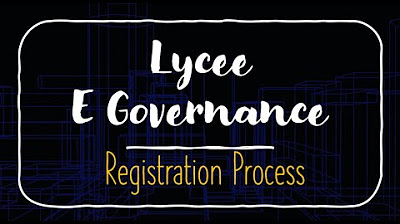5 Steps of the Knowledge Management Process
Summary
TLDRThis video explores the five-step knowledge management process essential for companies to effectively manage their collective expertise. It begins with 'Discovery,' where valuable knowledge is identified across individual, group, and structural levels. Next, it covers 'Knowledge Capture,' emphasizing the documentation of explicit, implicit, and tacit knowledge. The process continues with 'Indexing' to organize the knowledge for easy access, followed by 'Knowledge Assessment' to ensure accuracy and relevance. Finally, it highlights 'Distribution' for sharing this knowledge securely within the team, featuring Tetra, an AI-powered system that streamlines these processes and enhances organizational learning.
Takeaways
- 🔍 Step 1: Discovery involves identifying valuable knowledge within the team, separating essential information from less useful data.
- 📂 Knowledge is categorized into three levels: individual, group, and structural, representing personal insights, team wisdom, and organizational values, respectively.
- 📝 Step 2: Knowledge Capture focuses on documenting different types of knowledge: explicit (documented), implicit (process-related), and tacit (experience-based).
- 📊 Step 3: Indexing organizes captured knowledge into a structured system, making it easily navigable using specialized Knowledge Management tools.
- ✅ Step 4: Knowledge Assessment ensures the accuracy and relevance of stored information, identifying outdated content and knowledge gaps.
- 📤 Step 5: Distribution makes the organized knowledge accessible and shareable, with a user-friendly interface and appropriate security measures.
- 🤖 Tetra is highlighted as an AI-powered Knowledge Management system that streamlines knowledge processes and integrates with platforms like Slack and Microsoft Teams.
- 💬 Tetra can provide instant answers from the knowledge base and redirect unanswered questions to appropriate team members.
- 🔄 Continuous maintenance of the knowledge base is essential to ensure ongoing accuracy and relevance over time.
- 📈 Effective Knowledge Management reduces redundant questions and improves team efficiency, particularly in customer support and operations.
Q & A
What is the first step in the knowledge management process?
-The first step is Discovery, where teams identify beneficial knowledge and differentiate it from irrelevant information.
How is knowledge categorized in the Discovery phase?
-Knowledge is categorized into three levels: Individual Level (personal knowledge), Group Level (collective wisdom), and Structural Level (company values and processes).
What types of knowledge are captured during the Knowledge Capture step?
-The types of knowledge captured include Explicit Knowledge (documented information), Implicit Knowledge (organizational processes), and Tacit Knowledge (experiential lessons that are hard to articulate).
Why is indexing important in the knowledge management process?
-Indexing organizes captured knowledge for easy navigation, allowing teams to access information efficiently.
What role do Knowledge Management tools like Tetra play?
-Tools like Tetra help build a user-friendly knowledge base, making it easier for teams to access and share information.
What is the purpose of the Knowledge Assessment step?
-The purpose is to conduct quality control on the stored knowledge, ensuring accuracy and identifying outdated information or gaps.
How can companies ensure the knowledge base remains relevant over time?
-By maintaining a user-friendly interface, implementing security measures, and regularly updating the knowledge base.
What is Tetra and how does it enhance knowledge management?
-Tetra is an AI-powered knowledge management system that provides instant answers through platforms like Slack and Microsoft Teams, centralizing team knowledge and reducing repetitive questions.
What is tacit knowledge and why is it challenging to document?
-Tacit knowledge refers to insights and lessons learned from experience that are difficult to articulate and document clearly.
Why is collaboration important in the knowledge discovery process?
-Collaboration ensures that different perspectives are considered, helping to identify critical knowledge that may be overlooked when working in isolation.
Outlines

Cette section est réservée aux utilisateurs payants. Améliorez votre compte pour accéder à cette section.
Améliorer maintenantMindmap

Cette section est réservée aux utilisateurs payants. Améliorez votre compte pour accéder à cette section.
Améliorer maintenantKeywords

Cette section est réservée aux utilisateurs payants. Améliorez votre compte pour accéder à cette section.
Améliorer maintenantHighlights

Cette section est réservée aux utilisateurs payants. Améliorez votre compte pour accéder à cette section.
Améliorer maintenantTranscripts

Cette section est réservée aux utilisateurs payants. Améliorez votre compte pour accéder à cette section.
Améliorer maintenantVoir Plus de Vidéos Connexes

Lycee E Governance Portal Registration Process

5 Profesi IT Paling Menjanjikan Hingga 10 Tahun Mendatang

Understand Financial Assets in Less than 13 Minutes!

SaaS Sales Funnel - 5 Strategies To Selling SaaS (Software as a Service)

Why Your Tenant Screening Process Sucks (and how to fix it)

How To Make $23,856 Per Month As Easy As Sleeping (Full Walkthrough)
5.0 / 5 (0 votes)
